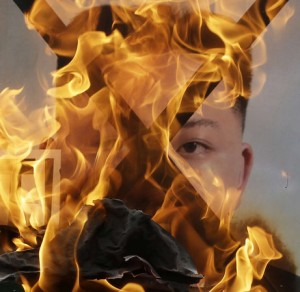
As last week’s abortive meeting between the two Koreas illustrated, the region’s foreign policy often seems to be at the mercy of Pyongyang’s irrational whims. This week, North Korea was at it again, proposing high-level talks with Washington just a few months after it threatened to bomb Austin, Texas.
While diplomats debate ad infinitum, many of North Korea’s 25 million people live a nightmare. Human Rights Watch and Amnesty International estimate that up to 200,000 North Koreans, some of them children, are imprisoned in camps modeled after the Soviet gulags, where they are subjected to torture and forced labor. Millions waste away in hunger, without freedom of expression or religion. Arbitrary arrests and public executions maintain order by instilling fear. The U.N. Human Rights Council has condemned North Korea’s “systematic, widespread, and grave violations of human rights.”
The situation has not improved since young Kim Jong-un succeeded his father a year and a half ago. His regime denies the very existence of prison camps.
Many North Koreans are jailed after failed attempts to cross the Chinese border. Because the demilitarized zone dividing the Koreas is heavily fortified, North Koreans can only escape northward. After the new government gave a shoot-on-sight order to curb illegal crossings, the number of defectors was almost halved, to 1,500 last year.
For those fortunate enough to make it to China, the journey has only begun. In violation of international agreements, China routinely repatriates North Korean refugees. So defectors face a 3,000-mile clandestine journey to Southeast Asia to gain refugee status and entry to South Korea, where they are naturalized and given government stipends. While around 25,000 have settled there, more than 30,000 North Korean refugees live illegally in China.
Humanitarian organizations such as Liberty in North Korea (LiNK) and Helping Hands Korea facilitate their journeys. The Rev. Tim Peters, a North Korea activist, has compared the network to the Underground Railroad that once helped African American slaves from the South reach freedom in the North. While these organizations make up a small bandage for the hemorrhaging, more relief may be achievable through diplomacy.
Although Pyongyang often appears impervious to international pressure, recent nudging from its sole ally, China, has served to moderate its bellicosity. During last week’s Sino-American summit, Presidents Obama and Xi Jinping found common ground on the need to denuclearize North Korea. They should extend the discussion to the plight of North Korea’s people.
Even as President George W. Bush denounced North Korea as part of the “axis of evil,” he separated politics from people by signing the 2004 North Korean Human Rights Act to help its refugees settle in America. Obama should follow Bush’s example by backing South Korean leaders’ persistent call for Beijing to stop repatriating defectors. With new leadership in the Koreas, Japan, and China, the Obama administration has a rare window of opportunity to champion human rights in Northeast Asia.
